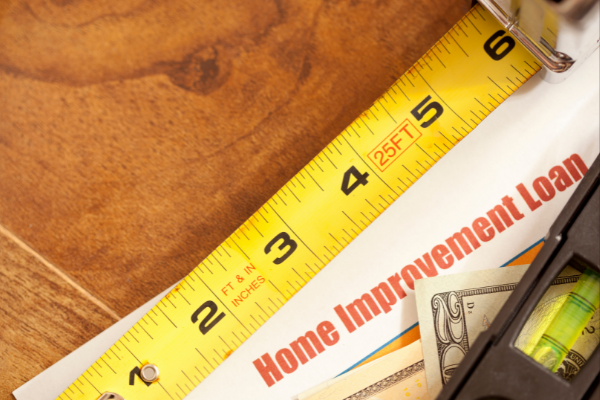 With more people spending time at home than ever before, many people are wondering how they can go about changing the way the home is laid out. This can be an expensive project, which is why many people are interested in getting a home improvement loan.
With more people spending time at home than ever before, many people are wondering how they can go about changing the way the home is laid out. This can be an expensive project, which is why many people are interested in getting a home improvement loan.
With many people buying outdated houses, there are numerous projects that many homeowners want to finish; however, this process is not the same as applying for a mortgage. There are home equity lines of credit, cash-out refinance opportunities, and financing through the contracting company. How is the process of applying for a home improvement loan different, and what do homeowners need to know?
Gather The Right Information Before Tapping Into Home Equity
One of the most common ways homeowners complete projects is to tap into the equity in the home. Therefore, no matter what option someone chooses, they need to make sure they gather the right information. All homeowners must make sure they have a great credit score before pursuing this option. Homeowners have the right to check their credit score once per year free of charge. They also need to have documents that verify their income, as lenders will want to take a look at someone’s debt to income ratio. Other forms of debt include car payments, credit card debt, and student loans.
Compare The Cost Of The Loan Options
Next, homeowners need to take a look at the cost of each loan. There are home equity loans, home equity lines of credit (HELOCs), and cash-out refinances. The interest rates on these loans can vary depending on the market, and many of them will have closing costs as well. Homeowners need to take a look at the costs and the interest rate to figure out which option works best for them. Some of these loans have adjustable rates on them, which can make them risky, and some of these loans have limits that are dependent on the amount of equity in the home.
Fixer Upper Loans Are Available
Those who have purchased a home in dire need of repairs might qualify for a rehabilitation loan, which is a Federal Housing Administration (FHA) 203(k) rehabilitation loan. This provides funds for renovations and repairs that are necessary to restore a home. Consider all options available before deciding.
 Before an owner can market a property to buyers that want to use a FHA loan, he will want to familiarize himself with the FHA’s standards. FHA won’t insure loans on just any property.
Before an owner can market a property to buyers that want to use a FHA loan, he will want to familiarize himself with the FHA’s standards. FHA won’t insure loans on just any property. Applying for a home loan can be an exciting process; however, this is a major financial decision. Therefore, potential homeowners need to make sure they understand how to shop for the best mortgage rate possible. A mortgage is usually a long-term loan, allowing potential homeowners to purchase a home using small monthly payments. Fortunately, there are a variety of tools available that can make the process easier. What do potential homeowners need to know when shopping for mortgage rates?
Applying for a home loan can be an exciting process; however, this is a major financial decision. Therefore, potential homeowners need to make sure they understand how to shop for the best mortgage rate possible. A mortgage is usually a long-term loan, allowing potential homeowners to purchase a home using small monthly payments. Fortunately, there are a variety of tools available that can make the process easier. What do potential homeowners need to know when shopping for mortgage rates? 
